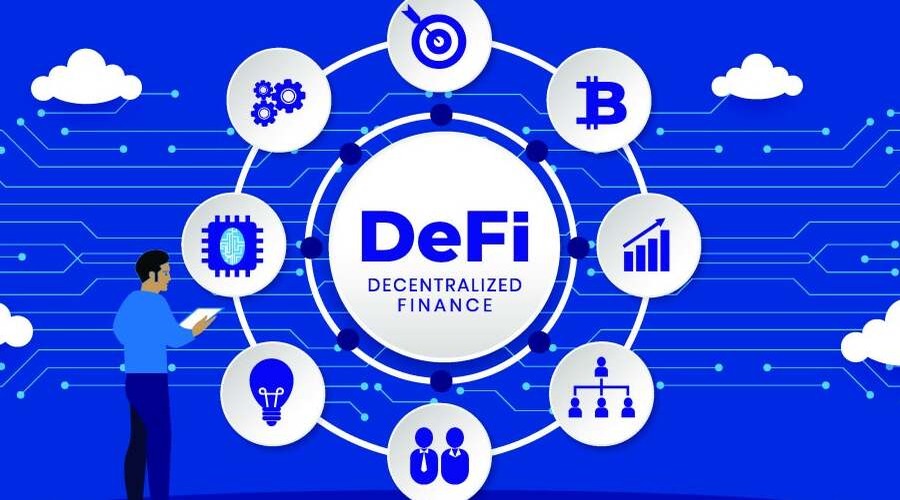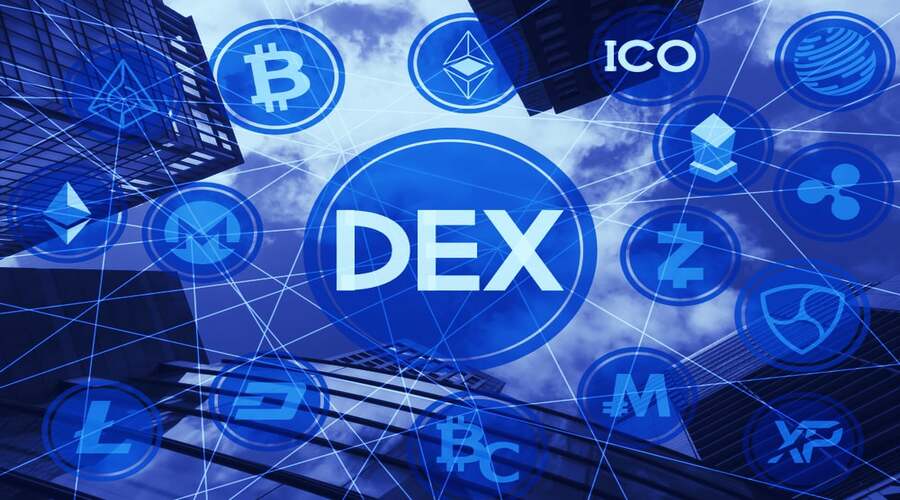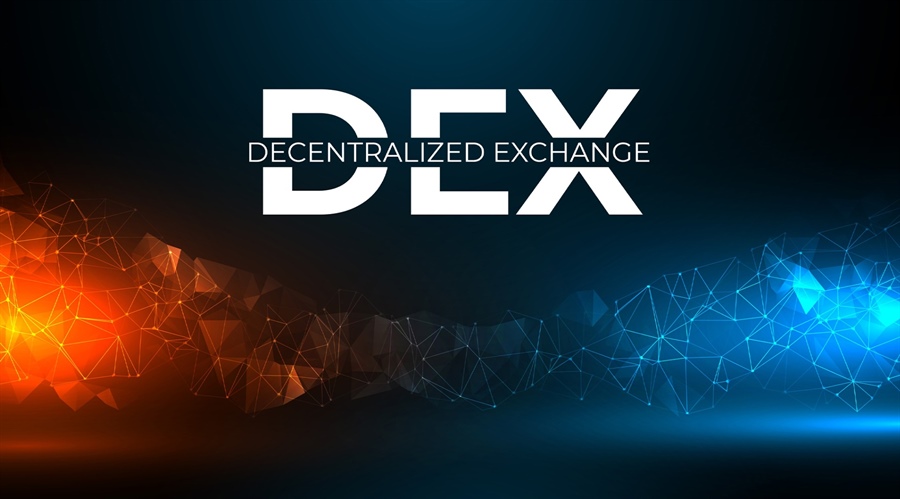In today’s rapidly evolving financial landscape, Decentralized Finance (DeFi) has emerged as a groundbreaking concept that leverages the power of blockchain technology to revolutionize traditional financial systems. Decentralized Finance encompasses a wide range of financial applications and services built on public blockchains, offering several key advantages over conventional financial systems. In this article, we will explore the significant advantages of implementing DeFi on the blockchain and examine how it is transforming the way we interact with money and financial services.
Introduction
To comprehend the advantages of implementing Decentralized Finance on the blockchain, it is crucial to understand the fundamentals of DeFi and blockchain technology itself. DeFi refers to a decentralized financial ecosystem that operates without the need for intermediaries, such as banks or financial institutions. It aims to provide open and permissionless financial services to anyone with an internet connection, offering greater financial inclusivity and accessibility.
Blockchain, on the other hand, is a distributed ledger technology that enables secure and transparent record-keeping of transactions across a network of computers. It operates on the principles of decentralization, immutability, and consensus, ensuring trust and eliminating the need for intermediaries.
What is DeFi? Exploring the World of Decentralized Finance
DeFi, short for Decentralized Finance, is a rapidly growing ecosystem that aims to transform traditional financial systems by leveraging the power of blockchain technology. Unlike traditional finance, which relies on centralized intermediaries such as banks, DeFi operates on a decentralized infrastructure, allowing users to transact directly with one another using smart contracts.
At its core, Decentralized Finance seeks to provide open and inclusive financial services to anyone with an internet connection, regardless of their location or background. By eliminating the need for intermediaries, DeFi aims to democratize financial services and empower individuals to have greater control over their money.
One of the key components of Decentralized Finance is the use of smart contracts. These self-executing contracts are coded with predefined rules and conditions. Once these conditions are met, the contract automatically executes the agreed-upon terms. Smart contracts enable a range of financial activities such as lending, borrowing, trading, and more, without the need for intermediaries.
Advantages of Implementing DeFi on the Blockchain

- Decentralization and Trustlessness: Implementing Decentralized Finance on the blockchain eliminates the need for intermediaries, such as banks or financial institutions. The decentralized nature of blockchain technology ensures that transactions are executed directly between participants without the need for trust in a central authority. This enhances trustlessness, as the transparency and immutability of the blockchain provide a tamper-proof and auditable record of all transactions.
- Accessibility and Financial Inclusion: DeFi on the blockchain enables global accessibility to financial services. Individuals from any part of the world can access and participate in DeFi platforms, as long as they have an internet connection. This promotes financial inclusion by providing banking services to the unbanked or underbanked populations who may not have access to traditional financial systems.
- Lower Costs and Efficiency: DeFi platforms built on the blockchain significantly reduce costs associated with financial transactions. By eliminating intermediaries, such as banks or payment processors, users can avoid transaction fees and other charges typically incurred in traditional financial systems. Additionally, smart contracts automate processes, reducing the need for manual intervention and increasing overall efficiency.
- Increased Transparency and Security: The transparent nature of blockchain technology ensures that all transactions and activities within the DeFi ecosystem are visible to all participants. This transparency reduces the possibility of fraud and provides a verifiable audit trail. Additionally, the security features of the blockchain, including encryption and consensus mechanisms, enhance the security of financial transactions, making them more resistant to hacking or unauthorized access.
- Innovation and Flexibility: DeFi on the blockchain fosters innovation and the development of new financial products and services. The programmable nature of smart contracts allows for the creation of complex financial instruments, decentralized exchanges, lending platforms, and more. This flexibility enables individuals to customize their financial interactions, create new investment opportunities, and explore novel ways of managing and growing their wealth.
Real-World Use Cases of DeFi on the Blockchain
- Lending and Borrowing: Decentralized Finance platforms enable individuals to lend and borrow funds without the need for intermediaries. Through smart contracts, borrowers can access loans by collateralizing their digital assets, while lenders earn interest on their holdings. This opens up opportunities for individuals who may not have traditional collateral or credit history to access loans and for investors to earn passive income.
- Decentralized Exchanges (DEXs): Decentralized Finance has introduced DEXs, which facilitate peer-to-peer trading without the need for intermediaries. Users can trade digital assets directly from their wallets, providing greater control over their funds and eliminating the risk of hacks or exchange failures. DEXs offer increased privacy, transparency, and 24/7 market access.
- Stablecoins: Stablecoins are cryptocurrencies designed to maintain a stable value, often pegged to a fiat currency like the US dollar. Decentralized Finance platforms leverage stablecoins to provide stability and avoid the volatility associated with other cryptocurrencies. These stablecoins enable users to engage in everyday transactions, hedge against market fluctuations, and access financial services with minimal exposure to price volatility.
- Automated Market Makers (AMMs): AMMs are an integral part of Decentralized Finance protocols. They use smart contracts to enable liquidity provision and asset swaps. AMMs ensure continuous liquidity by allowing users to trade tokens directly against a liquidity pool, eliminating the need for a traditional order book. This innovation has facilitated efficient and decentralized trading while incentivizing liquidity providers with fees.
- Insurance and Risk Management: DeFi has introduced decentralized insurance platforms that offer coverage against smart contract failures, hacks, or other unforeseen events. These platforms leverage blockchain technology to provide transparent, decentralized, and peer-to-peer insurance options. This empowers individuals and businesses to manage their risks and protect their assets more effectively.
- Decentralized Identity (DID): DeFi is exploring the integration of decentralized identity solutions, enabling individuals to have control over their personal data. DID on the blockchain provides a secure and tamper-proof system for identity verification, reducing the need for centralized identity providers. This has implications for seamless onboarding to various financial services and enhancing privacy.
Challenges and Risks of Implementing DeFi on the Blockchain
- Security Vulnerabilities: The decentralized nature of DeFi makes it susceptible to security vulnerabilities. Smart contract bugs, hacks, and vulnerabilities in underlying protocols can result in financial losses. Rigorous security audits, code reviews, and continuous monitoring are crucial to mitigate these risks.
- Regulatory Uncertainty: Decentralized Finance operates in a rapidly evolving regulatory landscape. The lack of clear regulations and compliance frameworks can pose challenges for DeFi projects, leading to legal and regulatory risks. Collaborating with legal experts and staying updated with regulatory developments is essential to navigate this landscape effectively.
- Scalability: As Decentralized Finance gains popularity, scalability becomes a significant challenge. Blockchains may face scalability limitations, resulting in congestion and high transaction fees. Solving scalability issues while maintaining decentralization and security is crucial for the widespread adoption of DeFi.
- Liquidity Risks: Decentralized Finance relies on liquidity providers and market participants. Insufficient liquidity in decentralized exchanges (DEXs) can result in slippage, low trading volumes, and inefficient price discovery. Ensuring adequate liquidity and incentivizing market participants are vital to maintain a healthy DeFi ecosystem.
- Smart Contract Risks: Smart contracts are the building blocks of DeFi applications. However, coding errors or vulnerabilities can lead to significant financial losses. Thorough auditing, testing, and the use of standardized smart contract templates can help mitigate these risks.
Conclusion
Implementing DeFi on the blockchain offers numerous advantages that are reshaping the financial landscape. From transparency and security to financial inclusion and programmable money, DeFi is revolutionizing how we interact with financial services. Real-world use cases demonstrate the potential for DeFi to provide decentralized and efficient alternatives to traditional systems. However, challenges such as security vulnerabilities, regulatory concerns, and scalability issues must be addressed for wider adoption. As the DeFi ecosystem continues to mature, it has the potential to reshape traditional financial systems and empower individuals worldwide.
FAQs
What is DeFi?
DeFi, short for Decentralized Finance, refers to a decentralized financial ecosystem built on blockchain technology. It aims to provide open and permissionless financial services to anyone with an internet connection, without relying on intermediaries.
How does Blockchain technology enable DeFi?
Blockchain technology enables DeFi by providing a transparent, secure, and decentralized infrastructure for financial transactions and applications. It eliminates the need for intermediaries, introduces programmable money through smart contracts, and enables global accessibility and interoperability.
Are DeFi platforms secure?
While Decentralized Finance platforms leverage blockchain’s security features, they are not entirely immune to security vulnerabilities. Smart contract bugs, hacks, and vulnerabilities in the underlying blockchain protocol can pose risks. It is crucial for developers and users to follow best security practices and conduct regular audits to mitigate these risks.
Can anyone participate in DeFi?
Yes, anyone with an internet connection can participate in Decentralized Finance. DeFi platforms operate on public blockchains, providing global accessibility and inclusivity. However, users should educate themselves about the risks and follow security measures to protect their funds.
What are some popular DeFi applications?
Some popular Decentralized Finance applications include decentralized exchanges (DEXs), decentralized lending and borrowing platforms, stablecoins and decentralized money markets, decentralized insurance platforms, and tokenization of assets. These applications offer innovative ways to transact, invest, and access financial services in a decentralized manner.




